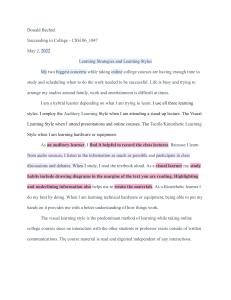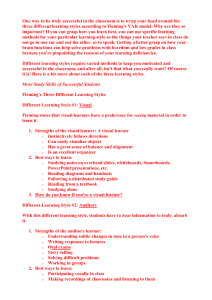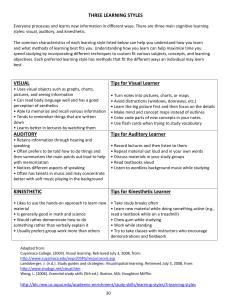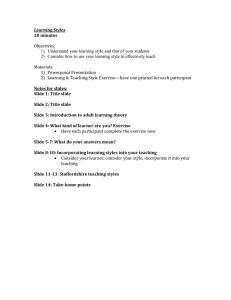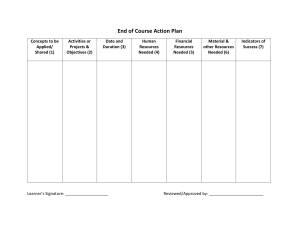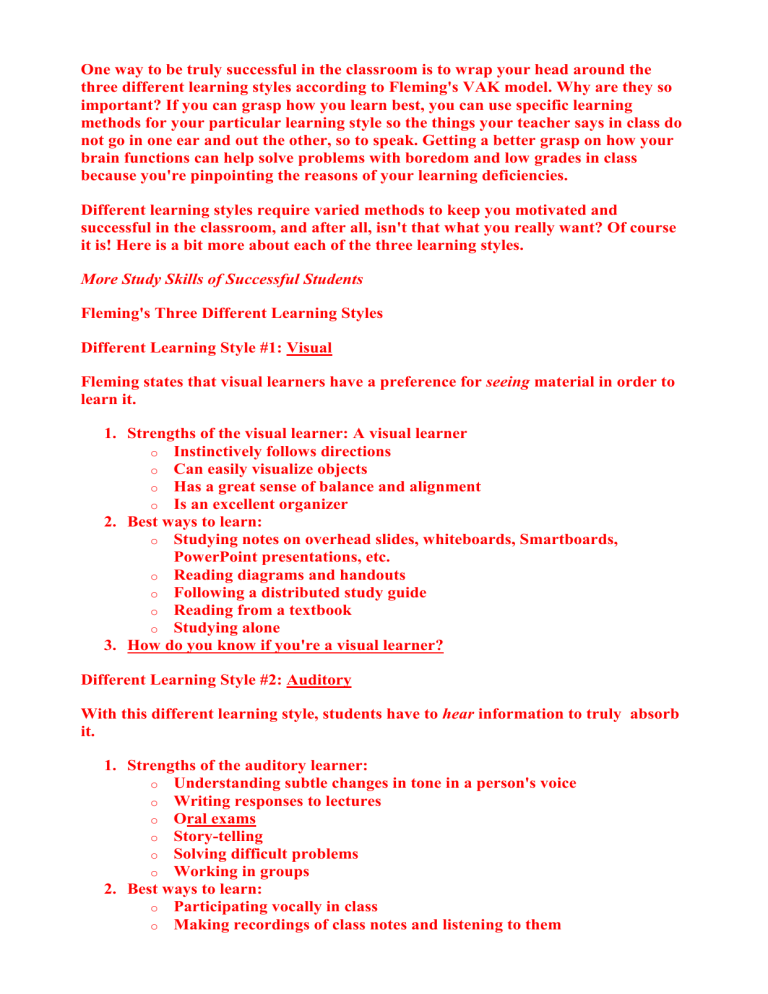
One way to be truly successful in the classroom is to wrap your head around the three different learning styles according to Fleming's VAK model. Why are they so important? If you can grasp how you learn best, you can use specific learning methods for your particular learning style so the things your teacher says in class do not go in one ear and out the other, so to speak. Getting a better grasp on how your brain functions can help solve problems with boredom and low grades in class because you're pinpointing the reasons of your learning deficiencies. Different learning styles require varied methods to keep you motivated and successful in the classroom, and after all, isn't that what you really want? Of course it is! Here is a bit more about each of the three learning styles. More Study Skills of Successful Students Fleming's Three Different Learning Styles Different Learning Style #1: Visual Fleming states that visual learners have a preference for seeing material in order to learn it. 1. Strengths of the visual learner: A visual learner o Instinctively follows directions o Can easily visualize objects o Has a great sense of balance and alignment o Is an excellent organizer 2. Best ways to learn: o Studying notes on overhead slides, whiteboards, Smartboards, PowerPoint presentations, etc. o Reading diagrams and handouts o Following a distributed study guide o Reading from a textbook o Studying alone 3. How do you know if you're a visual learner? Different Learning Style #2: Auditory With this different learning style, students have to hear information to truly absorb it. 1. Strengths of the auditory learner: o Understanding subtle changes in tone in a person's voice o Writing responses to lectures o Oral exams o Story-telling o Solving difficult problems o Working in groups 2. Best ways to learn: o Participating vocally in class o Making recordings of class notes and listening to them o o Reading assignments out loud Studying with a partner or group 1. How do you know if you're an auditory learner? Different Learning Style #3: Kinesthetic Kinesthetic learners tend to want to move while learning. 1. Strengths of the kinesthetic learner: o Great hand-eye coordination o Quick reception o Excellent experimenters o Good at sports, art and drama, o High levels of energy 2. Best ways to learn: o Conducting experiments o Acting out a play o Studying while standing or moving o Doodling during lectures o Studying while performing an athletic activity like bouncing a ball or shooting hoops 3. How do you know if you're a kinesthetic learner? Closing Thoughts About Learning Styles Generally, students tend to favor one learning style more than another, but most people are a mix of two or maybe even three different styles. Good students, however, can come from any predominant learning style. So, teachers, make sure you're creating a classroom that can engage any type of learner and students, use your strengths and mitigate your weaknesses so you can truly accomplish what you would like in class. Want to know which style you are? Take this simple test here: https://www.thoughtco.com/what-is-your-learning-style-4045353
